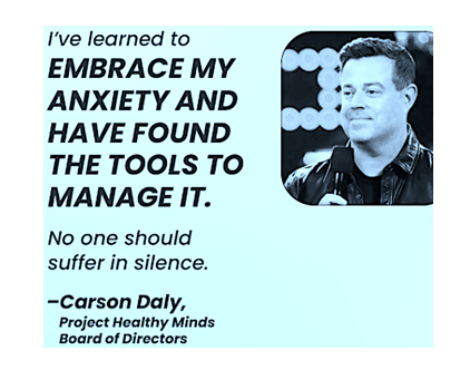No matter how connected you are to the world and those around you, loneliness is something all people face in their lives, at one point or another. In fact, even prior to the pandemic, there was an “epidemic of loneliness” – and surely, the problem has persisted in our increasingly digitally connected yet physically disconnected world. In short, you’re not alone in feeling alone. It’s a universal emotion.
Particularly during the winter months, when gatherings are more scarce than in the summertime, loneliness peaks for many people. Fortunately, there are effective ways to combat loneliness, and learn how to feel more fulfilled in your own company. The first step is understanding loneliness, and recognizing when you’re feeling it, so that you can prevent it from becoming a deeper issue.
What is loneliness?
Loneliness is a mental state and a feeling of isolation resulting from a perceived lack of companionship and human contact. Those who experience loneliness feel that they maintain fewer social relationships than they desire, and are often left craving connection and intimacy.
Being alone is not akin to being lonely. In actuality, the two are vastly different. While being alone is a physical state (in which you are by yourself), being lonely is an emotional state. If you are experiencing loneliness, it doesn’t matter if you are next to no one or in a crowded room of people. Loneliness means you feel disengaged and disconnected from the world around you—almost as if you are floating on an island, unable to connect with anyone.
What causes loneliness, and who is most prone to experiencing it?
Since loneliness has little to do with whether you’re surrounded by others, the emotional state can strike at any time. There are a number of factors that can cause or contribute to feelings of loneliness, though it usually stems from a significant life change—such as moving to a new home or city, or switching jobs. In general, working alone is a big contributor to loneliness, and given the recent rise in remote work, it’s no wonder loneliness has become so widespread.
Some research suggests that certain age groups are more prone to loneliness. For instance, older adults experience loneliness more than young adults and those who are middle-aged. Older adults are often retired and don’t have the same daily routine as those who are still working, which typically involves interactions with colleagues and others. They also may be bound by their physical condition or health status, and unable to engage in social activities to the same extent that they once could. Plus, older generations are more likely to experience loss, including the loss of close friends and family members. Grief can naturally spur feelings of intense loneliness.
Beyond age as a central factor, certain groups of people are also more prone to experience loneliness, including immigrants and those in the LGBTQ+ community, as well as mothers with young children. Those who struggle with substance abuse, serious illnesses and mental health challenges are also more prone to facing loneliness.
Effects of loneliness
Humans are innately social beings, so feeling lonely—particularly for prolonged periods—can greatly impact one’s wellbeing and sense of self-confidence and security.
Of course, it’s normal and natural to feel lonely at times, particularly when circumstances warrant it. Chronic loneliness, however, is another story. Chronic loneliness is characterized by consistent feelings of isolation, and a lingering lack of connection to the world around you. Typically, chronic loneliness is paired with low self-esteem and social anxiety.
Long-term loneliness can impact your health in major ways. If left unaddressed, loneliness can lead to a number of mental health concerns, including depression and anxiety, as well as physical ailments such as heart disease, weight gain, a weakened immune system and high blood pressure.
Chronic loneliness can impede your quality of life. If you start feeling lonely for extended periods of time, it’s important to take action and mitigate possible serious side effects. The sooner you treat it, the better.
How to cope with—and combat—loneliness
Everyone gets lonely sometimes, and knowing how to cope with it will help hasten the process of feeling better. Here are a few tips that can help you break a cycle of loneliness, and get back to feeling your best:
- Move your body: Physical activity has repeatedly proven to combat mental health concerns, and loneliness is no exception. Moving your body will release endorphins, which will inherently make you happier. Plus, working out can be a social exercise, too. Sign up for a group yoga class, or go for a walk with a friend.
- Break from social media: Being glued to our screens is problematic for a slew of reasons, not the least of which is that social media—in particular—can make us feel alone. Take a break from focusing on the lives of others, and zero in on your own needs and desires.
- Find independent activities: If you’re someone who suffers from chronic loneliness, it’s important to find ways to source happiness from within yourself, rather than other people. An effective way to do that is through engaging in solo activities that are fulfilling and fun. Whether that’s working on a puzzle, doing crafts, writing in a journal, or simply watching a movie in bed, filling your time with activities will help you learn to enjoy your own company.
- Spend time with loved ones: While loneliness has little to do with being alone, it can be very helpful to make a concerted effort to see people who make you feel your best. Socializing isn’t always easy, especially during periods of intense loneliness and insecurity, but spending time with people who elicit positive energy can help you feel more connected to the world around you, and yourself.
- Get involved: A great way to combat loneliness is to try volunteering, whether it’s at your local animal shelter or visiting nursing homes. Not only will it force you to be around other people, but it will also gratify you and make you feel a strong sense of fulfillment and belonging.
- Practice gratitude: Taking a few minutes every day to vocalize or write down the things you are thankful for can serve as an important reminder that your life is filled with blessings. Practicing mindfulness and gratitude has been proven to reduce feelings of loneliness, and bolster overall mental health.
- Talk to someone: Getting help is essential. Being vulnerable is challenging, but opening up to a trained mental health professional can be a transformative experience. Don’t be afraid to ask for support.



